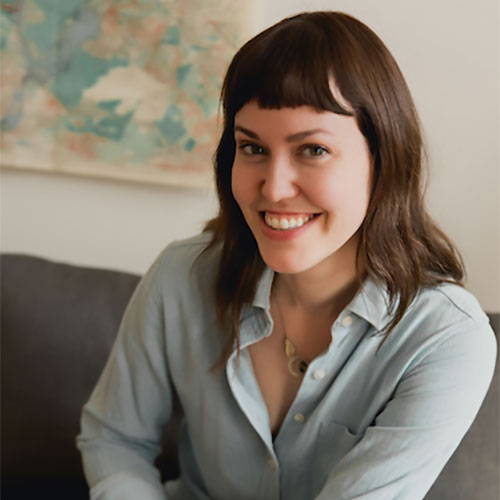THE BOOK DOCTOR
★ ★ ★ ★
WRITING AND THE BEYOND

By Caroline Donahue
All writing requires us to face the unknown. If we started a project knowing exactly what we wanted to say, word for word, would we want to go through with actually writing it? I certainly wouldn’t.
However, it’s most often a fear of the unknown that keeps people from beginning to write in the first place.
Do these fears sound familiar?
“I don’t know what the ending will be.”
“I don’t know exactly what happens in the middle.”
“I’ve got some ideas, but I’m not sure whether or not it’s enough.”
“I don’t want to start until I’m sure this will work.”
The thing I see most often in students and clients is a desire to know how the process will end, and that it will end well, before they even start. Unfortunately, this is an impossible ask, and one that takes all the joy out of writing.
A funny phenomenon that manifests in our critical inner monologue: the things our inner critic berates us about always seems to be about the next unknown part of the process. Got an idea for a novel? The critic will bash you about not being able to finish the draft. Once the draft is underway, then the critic starts throwing doubt about our ability to revise as the new roadblock. The critic always tries to strike by creating doubt in what feels outside our realm of understanding.
This is why we need to get comfortable with not knowing the answer when writing. In school, the worst thing we could imagine was being called on without knowing the answer. We had to figure out the right thing to say, and we had to do it quickly. This method of learning has put us in a mindset that is directly counterproductive to writing. We need to feel comfortable saying “I don’t know”. We need to start writing the beginning while we’re still uncertain what the end will be.
The truth is that we can only understand some aspects of the story by writing it.
These days, many things that used to be unthreatening have become the opposite. Being out in the street, someone walking close to us, or sitting next to anyone we don’t live with. These things have all made the known feel strange and untrustworthy and even dangerous. This can exacerbate our desire to cling to the familiar.
But it won’t always be this way. And writing is a way we can claim life as something we want it to be. The future may be uncertain and unknown and we may not know when we can travel next, but we can write about any time and place in this world, or if we desire we can go so far as to invent new ones.
Writing is a place where it’s safe to embrace the unfamiliar, that which is beyond our homes and the places we go habitually. Our worlds will get bigger again, but we can keep a positive relationship with mystery and the unknown by trusting that mystery and uncertainty are good things when we write.
When I come to the end of teaching a novel-drafting workshop, the transformation that most students report is that writing a novel no longer feels like something only other people can do. It feels less far away, and more possible. Writing their book hasn’t just been about that story. It’s also about them going from being people who dream of writing novels to people who do write novels. Once it’s part of who you are, there’s no going back to denying your ability to do it.
Which brings me to my final thought. We often hold on to thinking things are impossible and far away because we don’t want to give up the romance of the imaginary book. If we never write it, if we keep it “out there,” it will always be perfect. This dream works together with the critical self, who points at every perceived flaw as the writing comes closer and closer, making the project more and more real.
“Wouldn’t you prefer to keep that perfect book that hasn’t been written?” it asks, as it points its sharp fingers at every typo or unclear moment.
We have to let go of perfectionism. There is no such thing as the perfect book. The only books we have are the ones writers were willing to reach out into the great beyond for and attempt to bring down to earth. They always change on the way down. They lose some sparkle on the way, but they also gain connection and meaning, a bit like the velveteen rabbit, who gets beaten up and loved into life. This is the trade: accept the flaws in your book and it gets to exist for everyone.
Insist on its perfection, and it will only ever float out in the sky of your imagination, always waiting for that illusive moment when you can do it justice.
Don’t wait. The story needs you to trust it, and yourself.

Caroline Donahue is an American writer, podcaster, and English teacher living in Berlin. She is the host of The Secret Library podcast and co-host of GTFO pod. She is the co-editor of I Wrote it Anyway: An Anthology of Essays, and the author of Story Arcana : Using Tarot for Writing. She is currently at work on her first novel. Learn more at carolinedonahue.com
























0 Comments